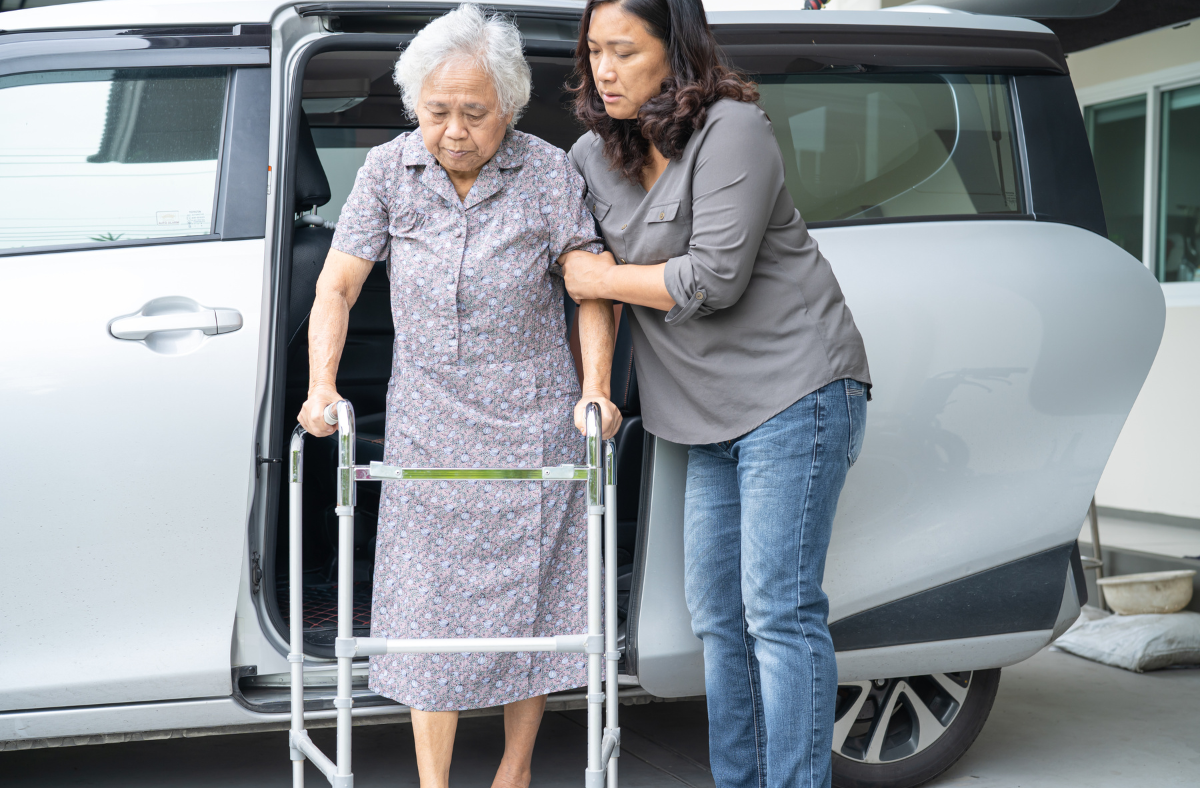The air-travel problems of wheelchair users are well known, but they’re just one item in the “traveling with disability” assortment. Travelers with other mobility impairments face challenges too, as do travelers with hearing, visual, and neurological disabilities. And many of these people are traveling not by air, but by train, boat, bus, RV, or personal car.
Here’s a “travel tips” collection for a range of disabilities and transport methods.

General Tips
- Do your “accessibility homework” for every attraction, hotel, and terminal you plan to spend time at.
- Even if you’ll only be in a terminal long enough to change trains or flights, check on what it offers. You may find yourself with time on your hands from an unexpected layover; or you may need to know about options for navigating the terminal. (For one example of the latter, see this article on autonomous wheelchairs at Miami International Airport.)
- If you’re traveling with non-disabled (or differently disabled) companions, compare preferred itineraries in advance. If different energy levels might cause problems, schedule a “separate activities” day or two.
- Travel during lighter-traffic hours to reduce distractions, delays, and sensory overload.
- Even if you don’t expect to need it in transit, keep medication and assistive technology in easy reach. Don’t bury it at the bottom of a loaded car trunk—or in a checked bag.
- Bring a charger for each assistive device—and keep the charger(s) in a convenient place, too!
- Never be too proud to ask for help.
If You Have Mobility Problems
- Even if you don’t normally use a wheelchair, consider requesting one (or a scooter) in terminals, where distances are often long and time short.
- If you’re prone to pressure sores, swollen feet, or other long-term-sitting issues, ask for a seat with extra room to stretch or move.
- When taking your own vehicle, plan rest-and-exercise stops for en route. Don’t eat all your meals in the car.
If You Have Vision and/or Hearing Impairments
- When making lodging reservations, let someone know if you’ll need help familiarizing yourself with the hotel/resort/cruise ship layout.
- In a terminal, you probably won’t be able to understand every public announcement or read every public message board. Download an app that can keep you updated on delays or gate changes.
- On long-distance transit, tell an attendant if you’ll have trouble hearing the announcement system.
If You’re Neurodivergent or Intellectually Disabled
- Even without a mobility impairment, you may be eligible for preboarding, airport wheelchairs, and similar accommodations. Check with your travel line and/or the terminal.
- If you use a digital communication aid, make sure it works in airplane mode and in remote areas.
- Take frequent breaks to avoid overwhelm.
- Look for quiet terminal lounges; motel rooms away from main guest-traffic areas; and tourist attractions with “sensory friendly” areas/hours.
- If you’re going to a family reunion or another gathering where most attendees are sharing crowded quarters, consider making separate lodging arrangements for yourself. Explain how it will benefit everyone if you have extra space to refresh yourself for the next activity.
If You Have Chronic Illness or Severe Allergies
- Before visiting a new place where you may encounter unexpected allergy triggers, ask your doctor about setting up a telehealth link in case you need quick advice.
- Take a full “day of rest” the day before the trip, and another the day after returning home. If you’ll be gone more than three days, save at least one day for taking it easy in your hotel room/lodge/B&B.
- Stay optimistic and concentrate on enjoying yourself where you are. Worrying about “getting sick” can itself trigger an episode.
One more tip for travelers of all disabilities (and for non-disabled travelers, too): don’t insist that everything go perfectly. Most things that go “wrong” do no serious harm—and they make great stories to share after you get home.

See also:

